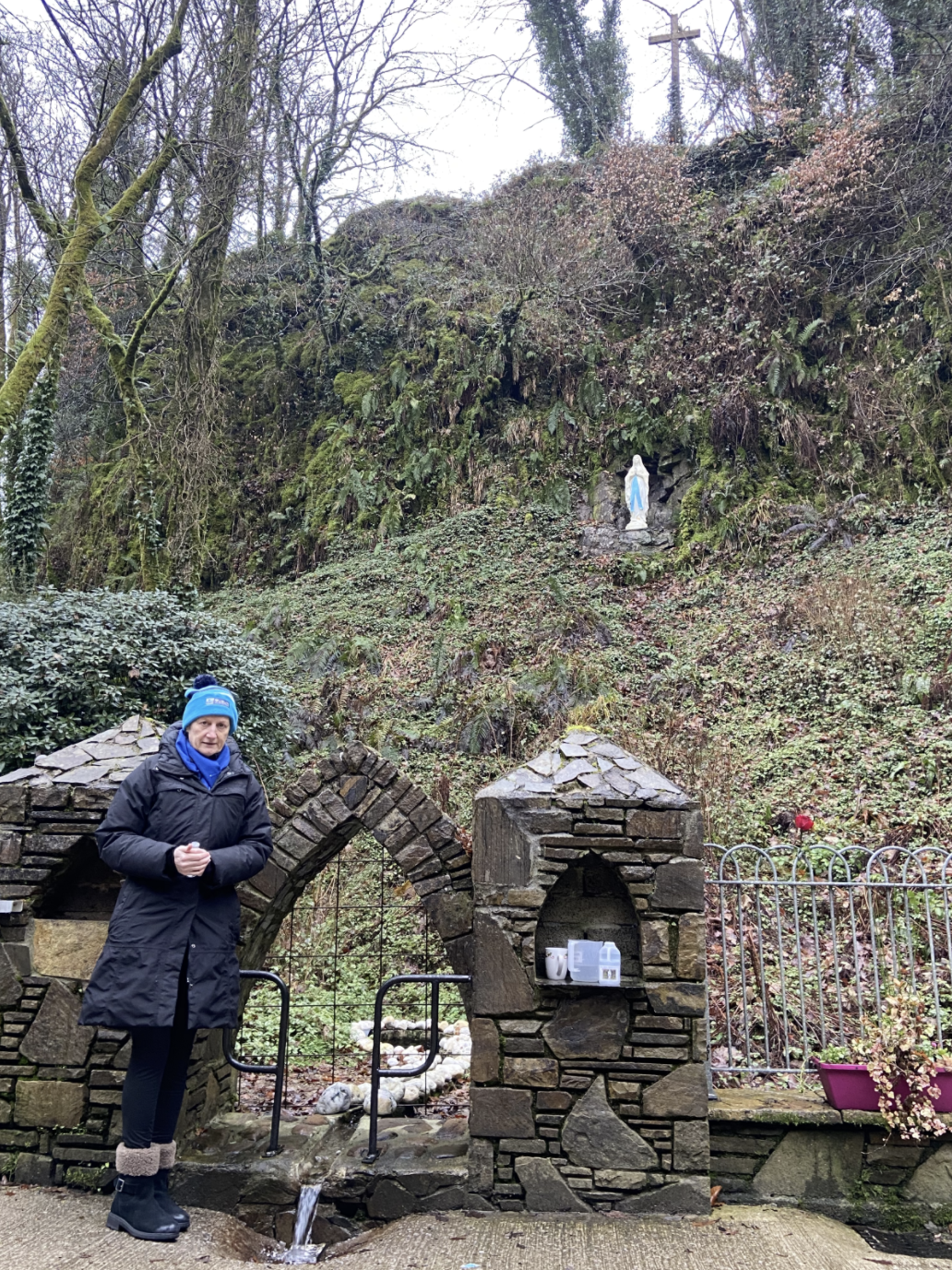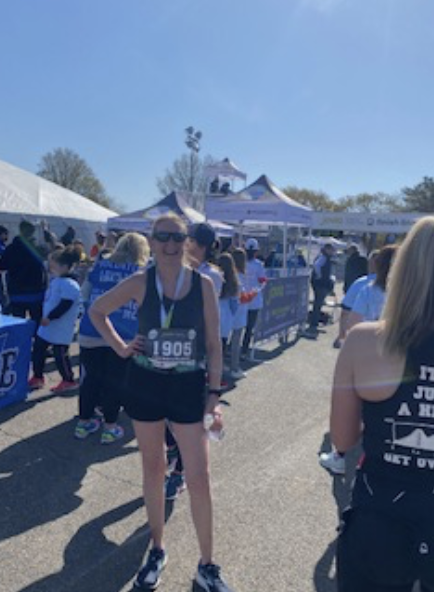When the Nurse Coach Becomes the Client: How I Restored Balance and Set Goals on a Healing Journey
By Ellen Dermody, MSN, RN, OCN®, ONN-CG, NC-BC
Part of the very nature of our humanity, every one of us will experience some form of misfortune, grief, or sadness throughout our lives. In what may seem like impossible conditions, many of us doubt (https://www.myamericannurse.com/spiritual-wellness-journey-wholeness/) whether we can find any joy or peace. Although ordinary human beings can rise to such challenges in extraordinary ways, a nurse coach can provide the necessary care and guidance to help nurses achieve that and be better able to care for others.
Nurse coaches encourage their clients to achieve health goals, such as lifestyle changes, preventive care, disease management, and integrative care when appropriate. But nurse coaches must also create balance and harmony in their own lives (https://books.google.com/books?id=t5zhrQEACAAJ&pg=PA36&source=gbs_toc_r&cad=2#v=onepage&q&f=false) so they are able to promote self-care to others. Nurse coaches must “find their own inner voice (https://www.ahna.org/Portals/66/Bark_Ochtrup_August%202021_FINAL_1.pdf) that tells them what is best for them, so they can find greater life alignment.”
The Integrative Nurse Coaching (TINC) Component 1: Self-Development (https://books.google.com/books?id=t5zhrQEACAAJ&pg=PA36&source=gbs_toc_r&cad=2#v=onepage&q&f=false) is one tool that nurse coaches can use to restore their own life balance and set goals for the future. It is particularly helpful after a traumatic event, something I personally discovered after experiencing a near-fatal car accident. Here is how I applied TINC Component 1’s four factors (https://books.google.com/books?id=t5zhrQEACAAJ&pg=PA36&source=gbs_toc_r&cad=2#v=onepage&q&f=false)—self-reflection, self-assessment, self-evaluation, and self-care—to my healing journey from that event.

Self-Reflection
Using mindfulness and awareness of our thoughts, feelings, judgments, beliefs, and perceptions, self-reflection is about valuing who we are and recognizing that we must be willing to experience fears, worriers, and self-deceptions. This involves exploring our habitual patterns and releasing relationships or projects that no longer work in our life—as well as exploring our own dying. Self-reflection leads to (https://books.google.com/books/about/Nurse_Coaching.html?id=t5zhrQEACAAJ) deeper understanding of impermanence and surrendering to our capacity for healing.
Self-reflection is an “important first step (https://www.ahna.org/Portals/66/Bark_Ochtrup_August%202021_FINAL_1.pdf) as both the client and the coach work toward a greater awareness of the client’s readiness for change and various decisions of functioning.” Furthermore, it empowers us (https://www.ahna.org/Portals/66/Docs/Nurse%20Coaching/Hay-Perdue_August%202021_FINAL.pdf) “to allow negative thoughts to pass and latch on to the thoughts of peace, joy, and hope for a fantastic future.”
On my own journey, I took a healing trip to Ireland. When vising the Mount Mellary Abbey, I allowed myself to process my thoughts of my near-death experience and began to heal from the trauma.
Self-Assessment
By understanding our present way of life, feelings, and personal habits, we can identify our personal health and wellness goals. Self-assessment enables nurses (https://books.google.com/books/about/Nurse_Coaching.html?id=t5zhrQEACAAJ) to deepen their capacities around life balance and satisfaction, relationships, spiritual, mental, emotional, physical (nutrition, exercise, weight) and health responsibility processes of recovery repair renewal and transformation that increase wholeness and often order and coherence.
The nurse coach’s integral assessment asks questions (https://www.ahna.org/Portals/66/Bark_Ochtrup_August%202021_FINAL_1.pdf) to elicit a nurse’s overall well-being from a physical, mental, energetic, and spiritual perspective. It provides individuals or groups an overall snapshot of where they are in or out of balance, an insight they can apply to improve their work, health, or overall well-being.
I applied this to my own life by setting goals for my physical recovery, wellness, and spiritual and mental well-being. I ran a half marathon, followed a better diet, and took a healing trip to Ireland see my family, which is where I visited Mount Mellary Abbey, a place of spiritual importance to me.
Self-Evaluation
Exploring how we can let go of our fixed ideas about ourselves or others and learning to bear witness to personal joy and suffering are essential for all nurses, especially those who coach others. How do we welcome and directly embrace everything that occurs? We learn to use all the ingredients of life.
Self-evaluation requires that (https://books.google.com/books/about/Nurse_Coaching.html?id=t5zhrQEACAAJ) we explore our understanding and experience of deep attention, intention, compassion, presence, empathy, humility, resilience. and healing. We listen for what resonates as right (https://www.ahna.org/Portals/66/Bark_Ochtrup_August%202021_FINAL_1.pdf), becoming aware, making decisions, and creating steps toward goals.
For this step on my own healing journey, I recognized that I went from nurse to patient after my accident and became reliant on others. I questioned why the accident happened to me, and I acknowledged that I needed to let go so I could heal.

Self-Care
By taking care of ourselves, we achieve more balance and harmony in daily life, increase awareness and choice, and a higher capacity to serve others. Self-care enables us (https://books.google.com/books/about/Nurse_Coaching.html?id=t5zhrQEACAAJ) to bring more of ourselves to all aspects of our work and life.
Holistic self-care incorporates spirituality (https://www.myamericannurse.com/spiritual-wellness-journey-wholeness/), giving us a sense of connection outside ourselves and includes our values. Your spirit is the seat of your deepest values and character (https://books.google.com/books/about/Nurse_Coaching.html?id=t5zhrQEACAAJ): what inspires you, what gives you hope, and what you feel strongly about. Spiritual wellness is a continuing journey (https://www.myamericannurse.com/spiritual-wellness-journey-wholeness/) of seeking out answers and connections and learning to see things in new ways.
My first step was recognizing that I needed to engage in self-care. I chose to have osteopathic physiotherapy on my physical recovery from my car accident. I set a goal to run a half a marathon one year after the accident and returned to work.
Tragedy or challenges will occur in everyone’s life in some shape or form; it is how we deal with them that makes the difference. Fortunately, I was able to use the skills I’ve learned as a nurse coach to help me heal and restore balance in my life, and for that I will be forever grateful.
